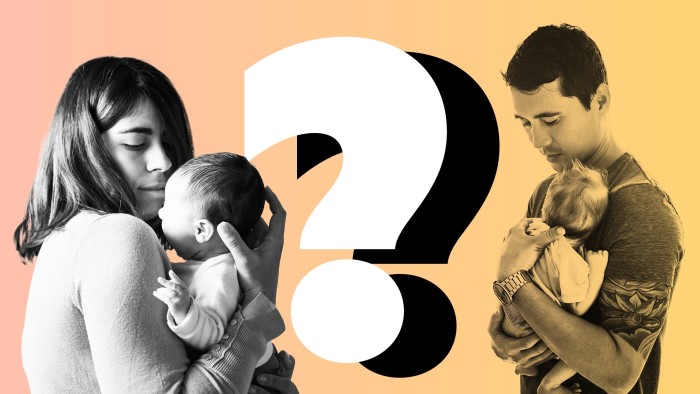Unlock the Editor’s Digest for free
Roula Khalaf, Editor of the FT, selects her favourite stories in this weekly newsletter.
As healthcare systems buckle under the weight of ageing populations, one area of care is forecast to have a lighter load: maternity units.
The global birth rate has plummeted since the 1950s, when women had an average of 4.7 children, to 2.3 births per woman today. If this trend continues, more than 23 nations are expected to see their populations halve by 2100.
The fall in fertility rates is most pronounced in developed nations: for example, the birth rate in England and Wales stands at 1.44 per woman, the lowest ever recorded — while populations are already shrinking in several OECD member states, including Japan, Italy and Greece, among others.
But what exactly is driving this steep decline? Research has historically shown a link between a mother’s education and birth rate — with highly educated women more likely to have fewer children, and to do so later in life. However, more recent studies by Oxford university have shown that fertility rates are now declining across all educational groups.
One reason for fewer births could also be the opportunity cost for mothers at work. Researchers have suggested that the “motherhood penalty” makes up more than 80 per cent of the gender pay gap — with the discrepancy between men and women only widening significantly when women hit their thirties and start having children.
Economic factors, such as the cost of raising a family, including childcare and housing costs, are also a factor. Rising housing costs in the UK now mean Gen Z faces twice as high costs as previous generations — while the average price of a nursery place for children under two years old is now £15,000 a year.
In addition to economic factors, changes in attitudes are also at play. Many millennials, or those born between 1981 and 1996, report feeling unprepared for parenthood, or not having found a suitable partner to have children with, as cited in research by the UCL Centre for Longitudinal Studies. The UCL report said that only one in four British millennials who say they want children are trying for them.
So, with so many factors at play, what do you think is the biggest cause for this decline? Why are people across the world having fewer children? Tell us your opinion by voting in our poll or commenting below the line.



